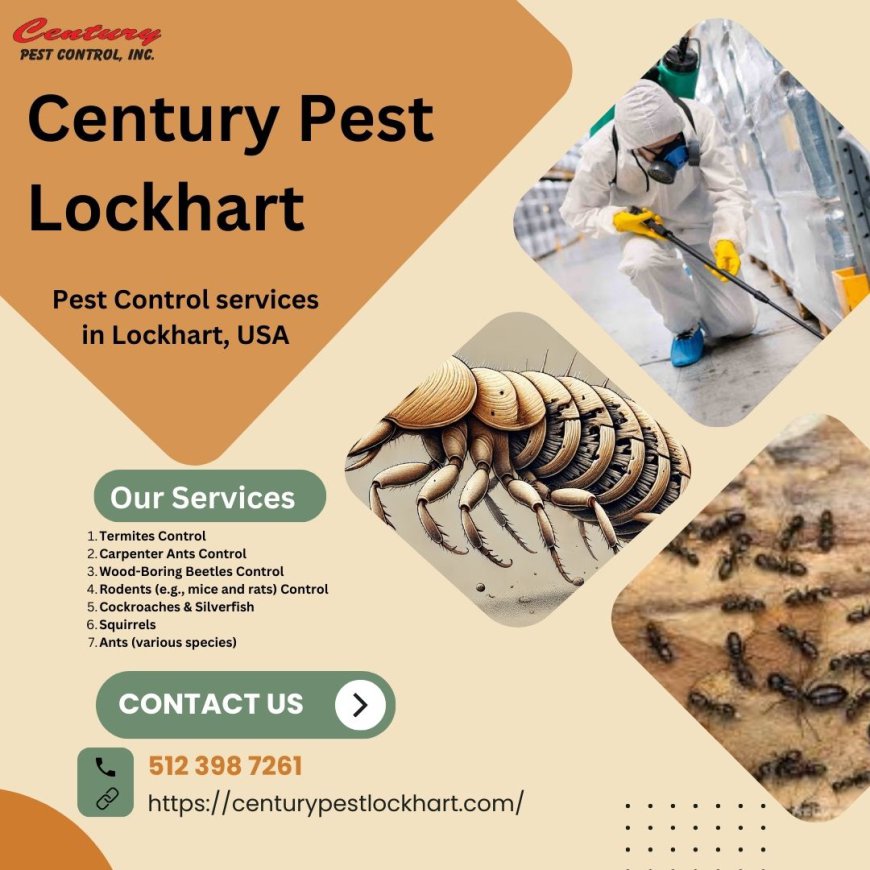Top Dangers of Ignoring Rodent Damage in Lockhart Homes
quick guide about rodent and pest damage

Introduction
Rodents are not just an occasional nuisance; they are a pervasive issue that can wreak havoc on homes and lives. In Lockhart, the problem is particularly insidious as many residents underestimate the severity of rodent infestations. From gnawed wires to health risks, ignoring the signs of rodent damage can lead to dire consequences. This article delves into the myriad dangers posed by rodents and highlights effective ways to safeguard your home against these silent invaders.
The Growing Problem of Rodents in Lockhart Homes
Lockhart’s serene neighborhoods are not immune to the growing issue of rodent infestations. Urban expansion and changes in environmental patterns have driven rodents closer to residential areas. As a result, homes provide a perfect haven for these pests, offering warmth, food, and shelter. Without intervention, this issue only intensifies, leaving property owners vulnerable to costly damages and health hazards.
Why Rodents Thrive in Residential Areas

Rodents are opportunistic creatures that adapt remarkably well to urban environments. Residential areas offer an abundance of food from unsecured trash, pet food left outside, or improperly sealed pantries. In addition, poorly maintained homes with cracks, gaps, and clutter provide safe hiding spots for rodents to nest and breed. The lack of natural predators in these areas further encourages their proliferation.
Common Types of Rodents Found in Lockhart
Lockhart homes are typically plagued by two main culprits: rats and mice. The Norway rat and roof rat are notorious for invading attics and basements, while house mice are smaller but equally destructive. Each species brings its own set of problems, from structural damage to the spread of diseases, making their presence a serious concern for homeowners.
How Rodents Damage Your Home's Structure
Gnawed Wires and the Risk of Electrical Fires
Rodents have ever-growing incisors, compelling them to gnaw constantly. Electrical wires are often their target, as the insulation around wires mimics the texture of natural materials they chew in the wild. This habit not only damages your home’s electrical system but also poses a significant fire hazard. A single gnawed wire could spark an inferno, putting lives and property at grave risk.
Chewed Wood and Compromised Foundations
From furniture to foundational beams, rodents will gnaw on wood to sharpen their teeth. Over time, this weakens structural components, causing costly repairs. In severe cases, compromised foundations can threaten the safety and stability of the entire home, requiring immediate and extensive restoration work.
Health Risks Associated with Rodent Infestations
Diseases Spread by Rodents to Humans
Rodents are carriers of numerous diseases, including hanta virus, leptospirosis, and salmonella. These pathogens can spread through contact with rodent droppings, urine, or saliva, as well as bites. Even indirect contact, such as inhaling dust contaminated with droppings, can lead to severe illness, making prompt action essential.
Contaminated Food and Water Sources
Rodents often infiltrate food storage areas, leaving behind droppings and urine that contaminate supplies. This contamination can cause food borne illnesses, including salmon ellosis, which results in severe gastrointestinal distress. Water sources are not immune, as rodents can infiltrate plumbing systems, introducing harmful bacteria into drinking water.
The Financial Burden of Ignoring Rodent Damage
Escalating Repair Costs over Time
What begins as minor gnaw marks or droppings can quickly escalate into significant damage. Ignoring these early signs allows infestations to grow, leading to skyrocketing repair costs. From replacing chewed wires to rebuilding compromised walls, the financial impact of unchecked rodent damage can be overwhelming.
Hidden Damages That Go Unnoticed Until It’s Too Late
Rodents are elusive creatures, often causing destruction in hidden areas like crawl spaces, attics, or inside walls. These damages often go unnoticed until a major issue arises, such as a structural failure or a fire. By the time these problems are discovered, the cost of repairs can be astronomical.
Preventive Measures to Safeguard Your Home
Sealing Entry Points and Creating Barriers
Prevention starts with identifying and sealing potential entry points. Rodents can squeeze through gaps as small as a dime, making thorough inspections vital. Installing barriers, such as metal screens over vents and weatherproofing doors and windows, helps keep rodents at bay.
Proper Waste Management to Deter Rodents
Maintaining a clean and organized environment is essential to deter rodents. Secure trash bins with tight-fitting lids, store food in airtight containers, and promptly clean up spills. Keeping outdoor areas free of clutter and overgrown vegetation removes potential nesting sites.
The Importance of Professional Pest Control Services
Expertise in Identifying and Addressing Root Causes
Professional pest control services provide a comprehensive approach to rodent management. Experts can identify the extent of infestations and address the root causes, ensuring effective and lasting solutions. Their specialized equipment and knowledge go beyond what DIY methods can achieve.
Long-term Solutions to Prevent Future Infestations
Professionals not only eliminate existing infestations but also implement strategies to prevent future ones. From installing advanced traps to providing guidance on home maintenance, their services offer peace of mind and protect your home from further damage.
Conclusion
Rodent infestations are more than just a nuisance—they are a threat to your home, health, and finances. Addressing the problem promptly is crucial to avoid escalating damage and associated risks. By taking preventive measures and seeking professional pest control services, Lockhart homeowners can safeguard their properties and enjoy a rodent-free environment. Protect your home today to ensure a safer, healthier tomorrow.
